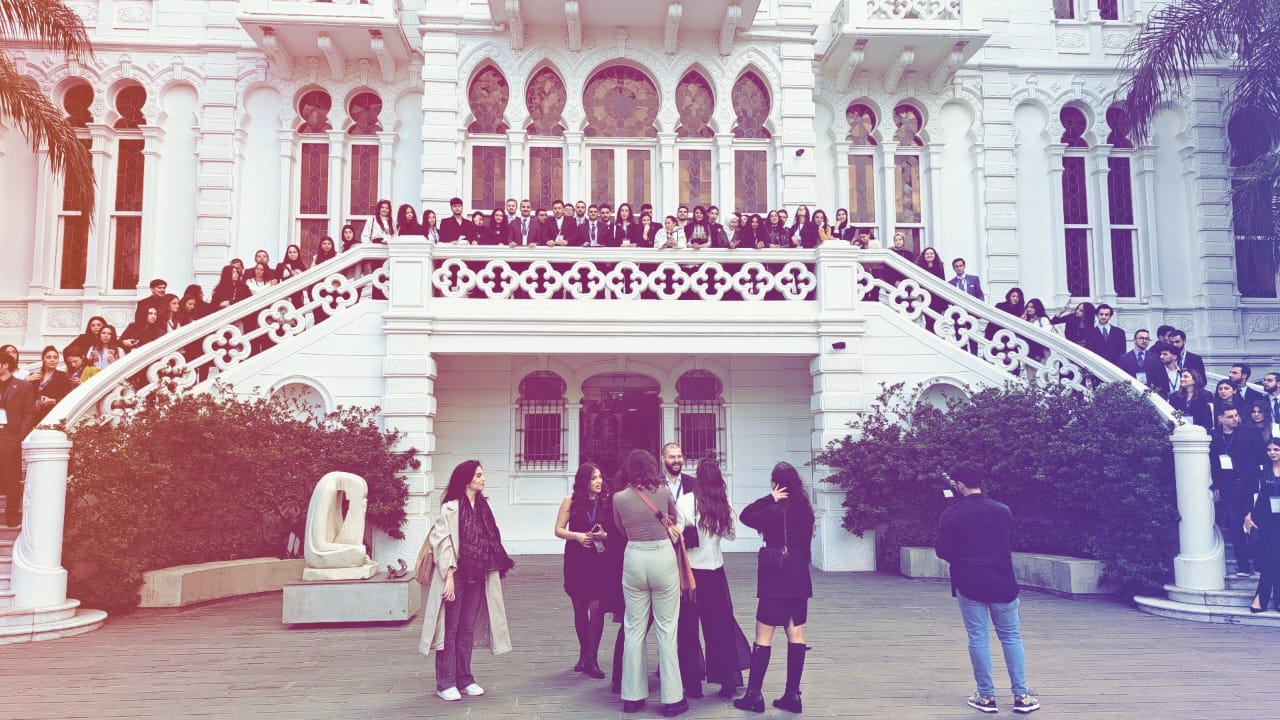
In Lebanon, in a nation characterized by entrenched sectarianism and a political landscape often perceived as self-serving, there is a prevailing narrative suggesting that the forthcoming generation will usher in a transformative era by transcending traditional governance paradigms. The Model Youth Parliament (MYP) is an enduring annual conference and is now in its ninth year. It stands as a tangible embodiment of this narrative. As a collaborative venture between the Friedrich Naumann Foundation for Freedom (FNF) and the USJ Service de la Vie Étudiante (SVE), the MYP represents a unique experiential platform for university students to immerse themselves in the role of parliamentary members.
Participants, from diverse Lebanese academic institutions and disciplinary backgrounds, embarked on their MYP odyssey through an "identity changer" exercise. This exercise entailed the random selection of a current political party represented in the Lebanese Parliament and a legislative committee tasked with amending a drafted law (including the Displaced Persons Committee, Administration and Justice Committee, Information Technology Committee, and Finance and Budget Committee).
The conference, spanning four days, was marked by its unique format and deliberative intensity. Following an initial day of orientation, students were afforded a full week for research, deliberation, and strategic planning, preceding three days of rigorous negotiation. Notably, this year's iteration introduced a novel element whereby participants were tasked with electing a president at the conference's culmination, adding a layer of complexity and authenticity to the simulation.
A cadre of dedicated mentors was guiding the students. They were distinguished by their past participation in MYP conferences, and with them, representatives from both the SVE office and the organizing FNF team. The organizing committee worked tirelessly to cultivate an optimal environment conducive to scholarly engagement and practical learning throughout the duration of the conference.
Supplementary to the students' experiential learning were interventions delivered by subject matter experts, spanning the ideologies of each political party, the intricacies of each legislative committee, and the dynamics of presidential elections as a whole. Esteemed figures from the Lebanese political sphere were also enlisted to provide guidance and mentorship, empowering students to adeptly represent their political party and national interests in the drafting of legislative amendments. They were also guided on matters of public speaking and negotiation by specialists in the fields.
The delegates' experience at the conference was carefully structured, with designated time slots for both Political Party Group (PPG) meetings and committee sessions, complemented by brief interludes. Despite the breaks, many delegates opted to utilize this time for additional negotiations and coalition-building, showcasing their dedication to the simulation's objectives.
During the PPG meetings, each party elected a president and vice-president to spearhead discussions and align their group towards a shared objective. Similarly, committees elected presidents and vice-presidents to uphold order and ensure focused deliberations on proposed amendments, steering clear of unnecessary digressions.
On the third day, delegates worked diligently to secure two signatories for each of their two allocated amendments per committee, a task demanding adept time management and effective communication. Their ability to achieve this under pressure emphasized their skill and commitment.
The fourth day proved pivotal; amendments underwent a primary voting phase within committees to determine which would advance to parliamentary voting. Concurrently, the three presidential candidates underwent interviews and presented their plans and campaigns for themselves and their parties. The conference then relocated to the historic Sursock Museum in Achrafieh, where Ibrahim Mneimneh assumed the role of Speaker of Parliament for the simulation. Following intense hours of presentations and debates, final amendments were voted on, and laws were finalized. The focus then shifted to the presidential elections, presided over by Judge Shukri Sader. Candidates presented their platforms, and voting began.
The presidential election was closely contested, with the top two candidates going head-to-head in a series of voting rounds. Ultimately, the candidate from Kataeb emerged victorious by a narrow margin, assuming the mantle of the new Lebanese president.
The conference culminated in a gala dinner and award ceremony at the FLSH campus. Thirteen students were honored with excellence awards, while four outstanding students were awarded fully funded trips to Belgium to visit the European Parliament later in the year.
This year's Model Youth Parliament (MYP) stands out as a remarkable event that is certain to be remembered as a crucial moment. The opportunity for students to assume the roles of legislators in parliament and participate in the election of a president was both rare and valuable. This experience is poised to have a profound and enduring impact on all involved, from the meticulous planning staff to the enthusiastic participating students.